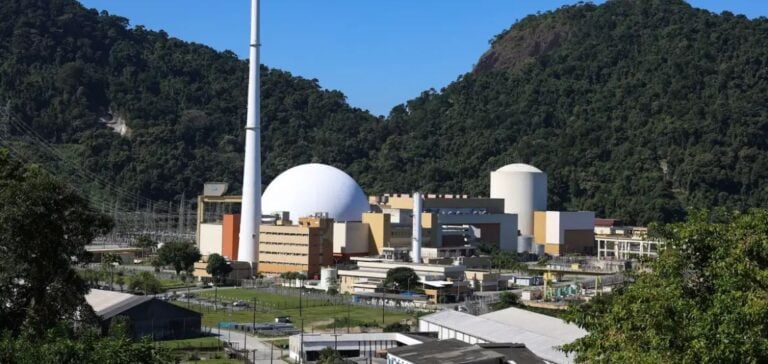The Angra 1 nuclear power plant, located in the state of Rio de Janeiro, has officially been granted authorization to extend its operational lifespan until 2044, bringing its total operational duration to 60 years. This decision was made by the National Nuclear Energy Commission (CNEN) following an in-depth technical evaluation that began in 2019.
Commercially operational since 1985, the pressurized water reactor (PWR) designed by Westinghouse has a production capacity of 640 MWe. Alongside Angra 2, which has a capacity of 1275 MWe and has been operational since 2001, Angra 1 plays a critical role in Brazil’s energy mix.
A rigorous validation process
The extension request, submitted in 2019, required a series of technical studies and the implementation of an Integrated Safety Improvement Plan. This plan includes updates to control systems, physical protection structures, and radioactive waste management protocols. These upgrades will be implemented during maintenance and refueling shutdowns.
Alessandro Facure, CNEN’s Director of Radiation Protection and Safety, emphasized: “Every aspect of this process was analyzed with technical rigor and responsibility. Our mission is to ensure safe operations for workers, the environment, and society.”
Investments and modernization
Eletronuclear has announced a 3.2 billion reais (approximately USD 550 million) investment plan between 2023 and 2027 to modernize Angra 1. The updates include new steam generators, replacement of the reactor pressure vessel cover, main transformers, and the implementation of obsolescence management systems.
The company also uses the U.S. Nuclear Regulatory Commission’s (NRC) licensing renewal methodologies, adhering to high international standards. Temporary financing has been secured from major shareholders ENBPar and Eletrobras, while negotiations are ongoing with the U.S. Export-Import Bank to support the modernization program.
A model for the future
Raul Lycurgo, President of Eletronuclear, called the authorization a “major achievement,” reflecting the dedication of the technical teams over the past five years. He added that Angra 1 is now fully equipped to continue delivering clean and reliable energy to support Brazil’s development.
In 2023, the plant produced 4.78 million MWh, with an average load factor of 88.24% over the past five years. This is sufficient to power a city of two million residents.
Next steps and continued monitoring
Beyond modernization efforts, CNEN will continue to closely monitor the implementation of safety measures, including the Local Emergency Plan and Fukushima Response Plan, established after 2011. A periodic safety reassessment is planned for 2033 to ensure compliance with the highest international standards.
This extension is a milestone for energy production and highlights the maturity of Brazil’s nuclear regulatory system while reinforcing Angra 1’s contribution to the country’s energy transition.






















